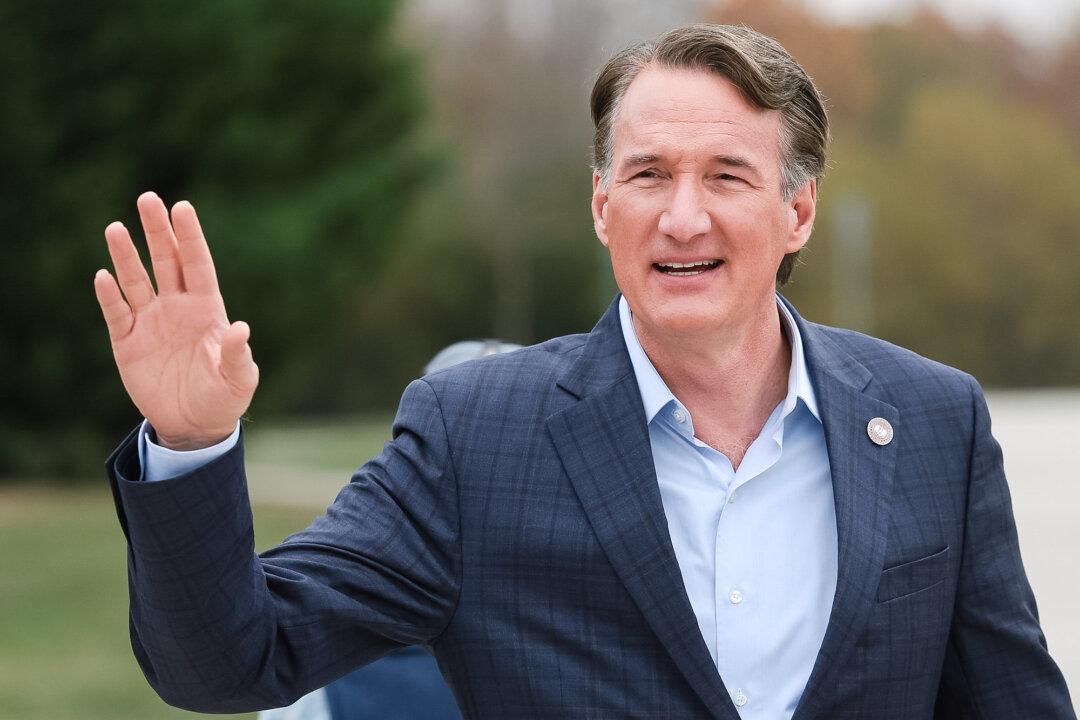Virginia Gov. Glenn Youngkin says his state will stop following California’s standards that would mandate that every new car sold in the state be electric by 2035.
The Republican governor made the decision because of a “misguided electric vehicle mandate imposed by unelected leaders nearly 3,000 miles away from the Commonwealth” of Virginia, he said in a statement issued on June 5.





